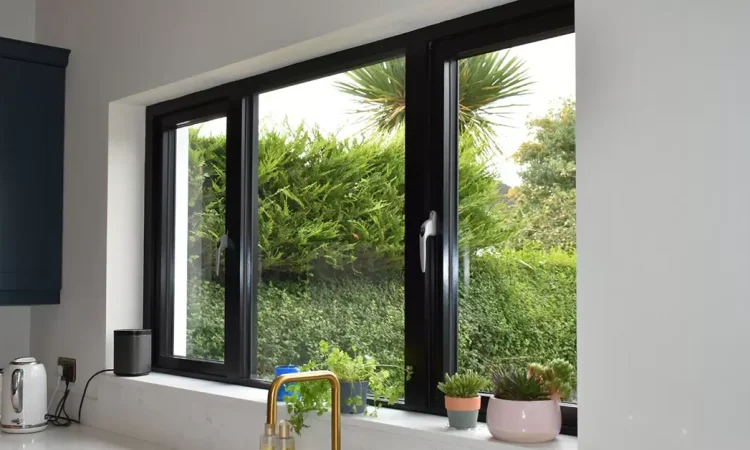
Urban living has its charm—proximity to bustling streets, vibrant neighborhoods, and easy access to hubs of activity. However, one common challenge for urban homeowners is noise pollution. From traffic and construction to noisy neighbors, reducing unwanted sounds is crucial to maintaining indoor peace and comfort. Windows, being one of the primary entry points for external noise, play a significant role in noise control. In this blog, we’ll explore how different window types—louver, casement, and sliding windows—help manage noise, with a specific focus on louver windows, their limitations, and how to optimize them for urban environments.
Why Noise Control Through Windows Matters
Windows are often the weakest spot in soundproofing because they allow sound waves to pass through gaps, glass panes, and even their frames. For urban homes, effective noise control starts with choosing the right window type and enhancing it with features like:
Thicker Glass: Better at blocking sound waves.
Sealed Frames: Prevent sound from sneaking through gaps.
Double or Triple Glazing: Adds layers of insulation against external noise.
Acoustic Add-Ons: Noise-reducing films or curtains.
Whether you work from home, need uninterrupted sleep, or simply value peace and quiet, investing in the right window solution can make a noticeable difference.
Louver Windows: Overcoming Noise Challenges
What Are Louver Windows?
Louver windows feature a series of horizontal slats mounted on a track or hinges, which tilt open and closed. They allow for adjustable airflow and are popular in tropical climates because they maximize ventilation. While their design excels in promoting airflow, their ability to block external noise has limitations due to the slatted construction.
Noise Control Challenges with Louver Windows
1. Design Limitations
The open slat design of louver windows creates natural gaps, even when fully closed, allowing noise to pass through. This design is ideal for ventilation but not for soundproofing.
Even sealed louvers struggle with sound insulation compared to solid-pane alternatives like casement or sliding windows.
2. Single Glass or Material Thickness
Most louver windows use single-pane glass or thin materials for slats, which provide minimal resistance to sound waves. Thicker or laminated glass is rarely used in traditional louver windows, further impacting noise control.
3. Air Gaps
The tilting mechanism of louver windows means they seldom seal as tightly as other window types. Air gaps between the slats act as pathways for sound to enter, making urban noise more noticeable indoors.
Optimizing Louver Windows for Noise Control
While louver windows may not inherently provide superior soundproofing, there are ways to improve their performance for urban environments:
1. Upgrade to Thicker Slats or Glass
Replace the slats with thicker glass or alternative materials like acoustic glass to resist sound waves.
Laminated or double-pane glass slats can significantly reduce noise compared to standard single-pane options.
2. Seal Gaps Between Slats
Invest in weatherstripping or acoustic sealing around slats to minimize gaps and block airborne sounds.
Tighten the tilting mechanism to ensure slats close as snugly as possible.
3. Combine with Noise-Reducing Accessories
Add soundproof curtains or acoustic blinds to your louver windows for supplemental noise reduction.
Consider layering with noise-blocking films on the slats to absorb and reduce external sound outflow.
4. Additional Barriers
Pair louver windows with external privacy screens, shutters, or storm panels that act as a noise barrier. These additions can help diffuse sound before it reaches the inner window.
5. Strategic Placement
Use louver windows in rooms where ventilation is the priority and noise sensitivity is lower, such as kitchens or bathrooms. Avoid using them in bedrooms or home offices unless enhanced for soundproofing.
Noise Control Alternatives: Casement and Sliding Windows
While louver windows require optimizations for noise control, casement and sliding windows are naturally better suited for sound insulation:
Casement Windows
Tight Seal: Aluminum casement windows seal tightly against their frames when closed, creating an effective barrier against external noise.
Glazing Options: They are easy to fit with double or triple glazing or laminated glass for enhanced soundproofing.
Directional Sound Block: Their hinge design can help reduce noise exposure by angling the glass away from direct sound sources.
Sliding Windows
Robust Frames: Aluminum sliding windows typically have durable frames that reduce air gaps.
Double Glazing: Sliding window designs are compatible with acoustic or double-glazed panels, creating better noise insulation.
Partial Openings: When closed, sliding windows block sound more effectively than open designs, but they lack the airtight seal of casement windows.
Both of these window types outperform louver windows significantly in urban noise control due to their tight-sealing designs and compatibility with noise-reducing glass.
Why Louver Windows Are Still Valuable in Urban Homes
Despite their challenges with noise control, louver windows have their own set of advantages for urban living:
Ventilation: They promote excellent airflow, reducing reliance on air conditioners and improving indoor air quality.
Natural Light: Louver windows maximize light while allowing for some privacy, even in open positions.
Design Appeal: Their sleek, tropical aesthetic works well in modern and traditional home designs.
By combining ventilation benefits with add-ons for noise mitigation, urban homeowners can still enjoy louver windows without sacrificing indoor tranquility.
Noise control is an important consideration when choosing windows for urban homes. While louver windows may not offer the same soundproofing capabilities as casement or sliding windows, they can be optimized with thicker slats, acoustic treatments, and strategic placement to help reduce external noise.




